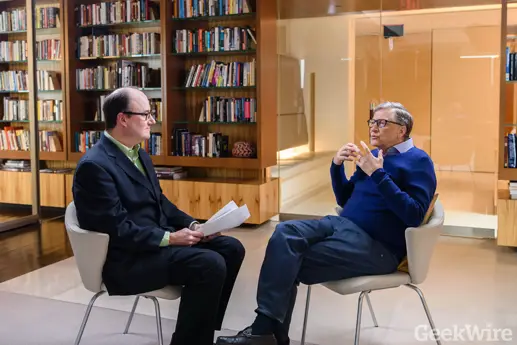"Headhunter" Bill Gates - How the Technology Empire Microsoft Recruited Talent
Prioritizing and valuing talent, Bill Gates built an amazing recruitment machine that helped his name and Microsoft rise to leading positions in the IT sector.
The work of "headhunters" and senior positions
Nowadays, senior positions in large companies are often difficult to take on. In addition to professional qualifications, these people also need experience and vision to lead companies. People who meet these requirements often have stable jobs and no desire to look for new ones, so when a company needs to recruit for senior positions such as CEOs, they often rely on "headhunters".
According to investopedia.com, a "Headhunter", as the name implies, is the job of finding suitable people for special positions at a company. Typically this is the duty of the recruiting department within the company. However, for senior positions such as CEOs or department heads that require high specialization and experience, companies will use "headhunting" services.
A quality headhunter will spend time vetting candidates for the job before sending their contact information to the hiring manager. They will review a person's resume, learn about their work history, and assess their abilities against what the hiring company requires.
In simple terms, a "hunter" will identify potential candidates and approach them with proposals. Then they play the role of liaison between the hiring company and talent to arrange agreements.

Bill Gates and Microsoft applicants
According to Jeffrey E. Christian in his book "The View From the Headhunter's Office", Bill Gates is known to have spent 50% of his time on planes interviewing and recruiting talent.
While competitors bought new jets or enjoyed their wealth, he was traveling to find and recruit people. From the beginning, Bill Gates and Microsoft relied on a small group of engineers to design products along with a strategy to bring them to market, so he understood the importance of talent in work.
Rather than hiring "headhunting" services readily provided by companies and individuals, this billionaire often personally met talented candidates for interviews and persuaded them to work for him.
Many years ago, Gates successfully recruited visionary expert Charles Simonyi, who helped Microsoft surpass its competitors. In 1992, he flew to New York to recruit Craig Mundie, a computer scientist who had developed an operating system for Data General minicomputers.
Two years later, he signed another computer scientist Paul Flessner, who had managed large company computer systems and openly criticized Microsoft software.
All of these people later took senior positions at Microsoft and helped Bill Gates make the company a leader in its field. Mundie headed the consumer products division, developing Windows CE, palmtop computers, pocket PCs, and automated teller machines; he also participated in the WebTV acquisition.
Later, Mundie became Gates' chief strategic advisor for restructuring Microsoft. Flessner focused on quality control, transforming Microsoft's $50 million database division into a multi-billion dollar operation. He also quickly gained a reputation as not only an excellent manager but also outstanding in promoting a diverse team of computer scientists with big egos.
This led many software developers to leave large companies like IBM and Tandem to work at Microsoft.
For Bill Gates, finding talent within the company was very important. He also launched the "Code 4 Bill" campaign in India in 2005 to find young talents from that country.
20 students were selected for software engineering internships at the India office. The top person among the 20 would join Gates' technical support team for a year.
"Talent is the driving force behind the success of today's global IT economy. Indian students are setting high standards in the industry. They can help propel India's progress as a global IT leader," the billionaire shared about India's IT potential.
In addition to seeking talent, Bill Gates and Microsoft also established research centers in other countries like the Asia Research Center. The company pioneered recognizing that emerging markets were not only potential markets but also sources of talent.

Opportunity to Become a Headhunter with Huge Income Potential at Aniday
In Vietnam, the terms "headhunter" are still not widely known. Many people are unaware of their meaning. Therefore, with the goal of changing the mid-level and senior-level recruitment market to provide more value and income for freelance headhunters, Aniday launched a 4.0 candidate referral platform with over 5,000 headhunters helping companies solve HR issues cost-effectively.
Not only that, with over 600 open positions and a total reward amount of over 10 billion VND, Aniday provides freelance headhunters in the market an opportunity as well as a completely new workplace for the Vietnamese recruitment market.
Check out the list of available jobs and reward levels at Aniday below:
Aniday's HR Services
Headhunting Service
Find and recruit quality candidates in just 1 week! Supported by 40,000 experienced headhunters in IT, Finance, Marketing… capable of recruiting in any region.
Headhunting Service ➔Employer of Record (EOR) Service
On behalf of your business, we recruit employees and handle payroll without the need to establish a company in markets such as Vietnam, Singapore, Malaysia, India, Indonesia…
Employer of Record (EOR) Service ➔